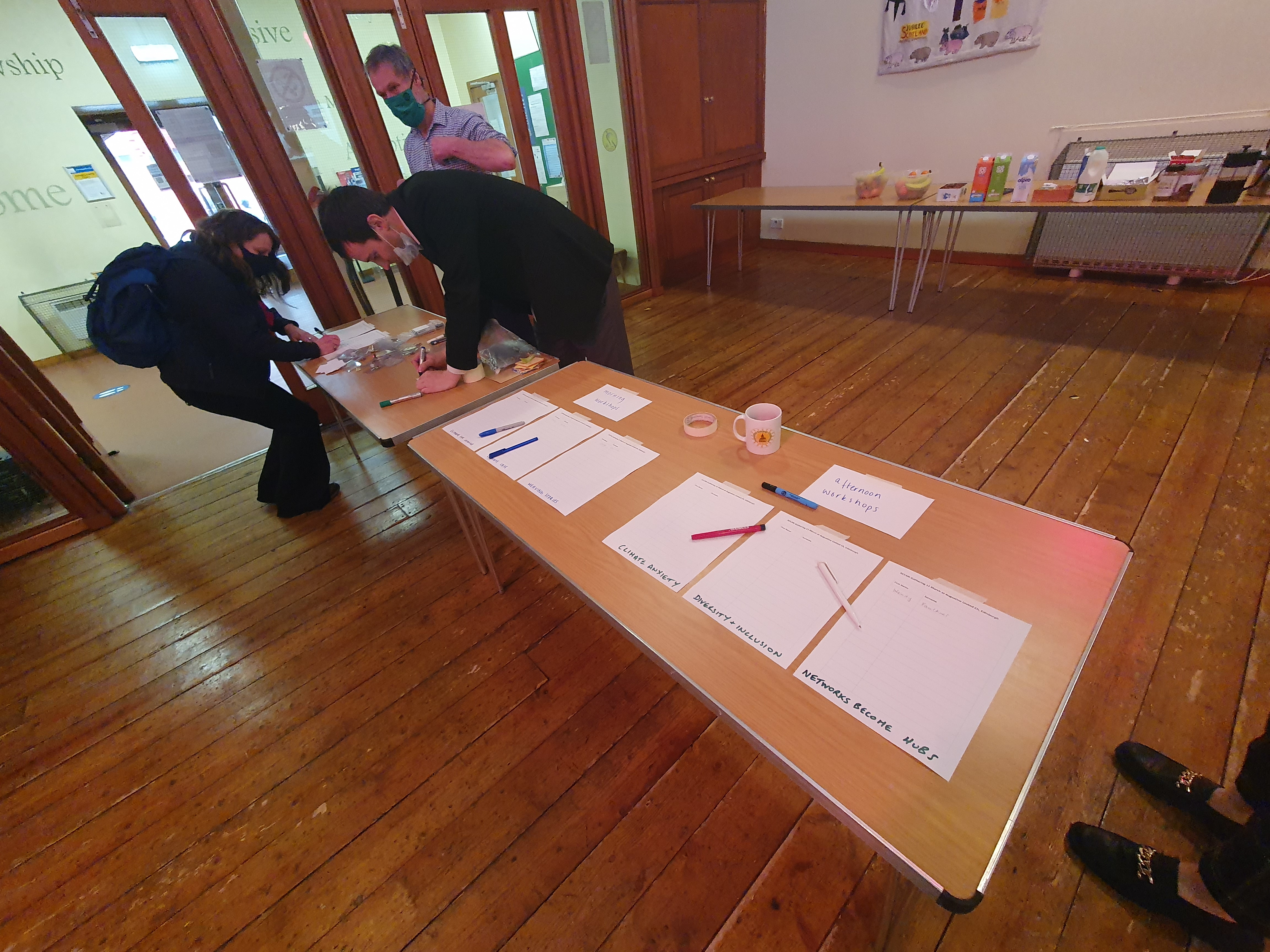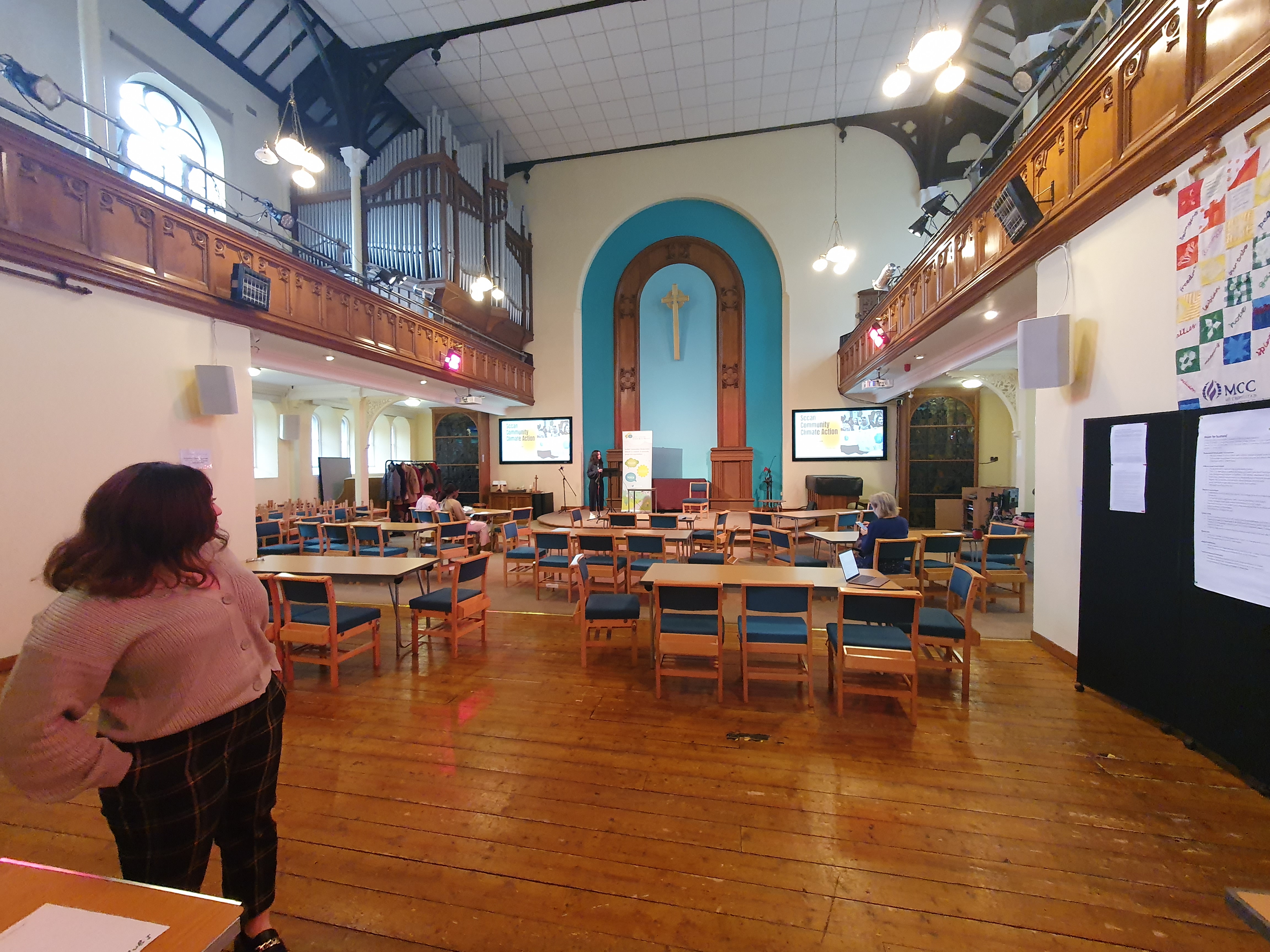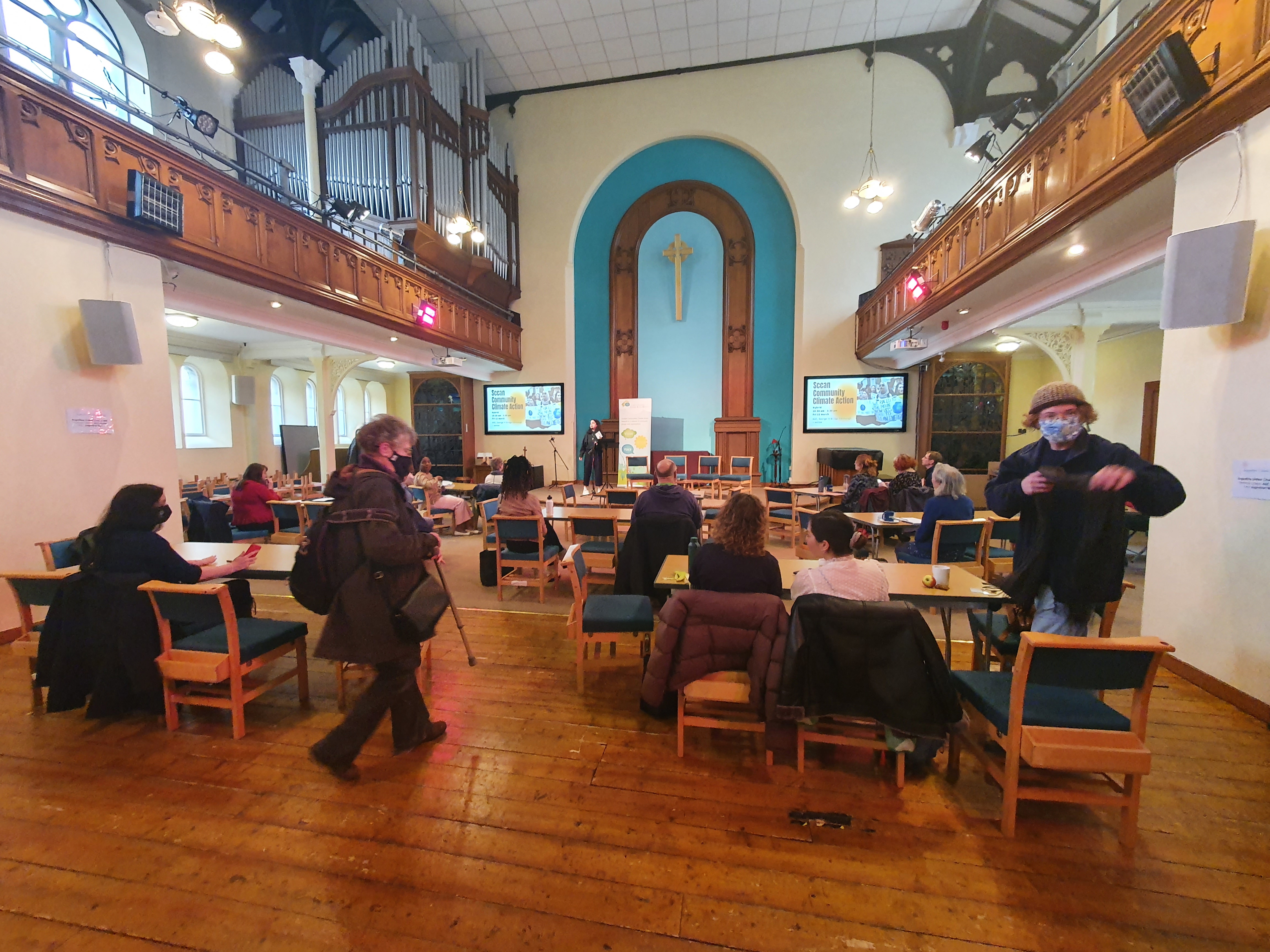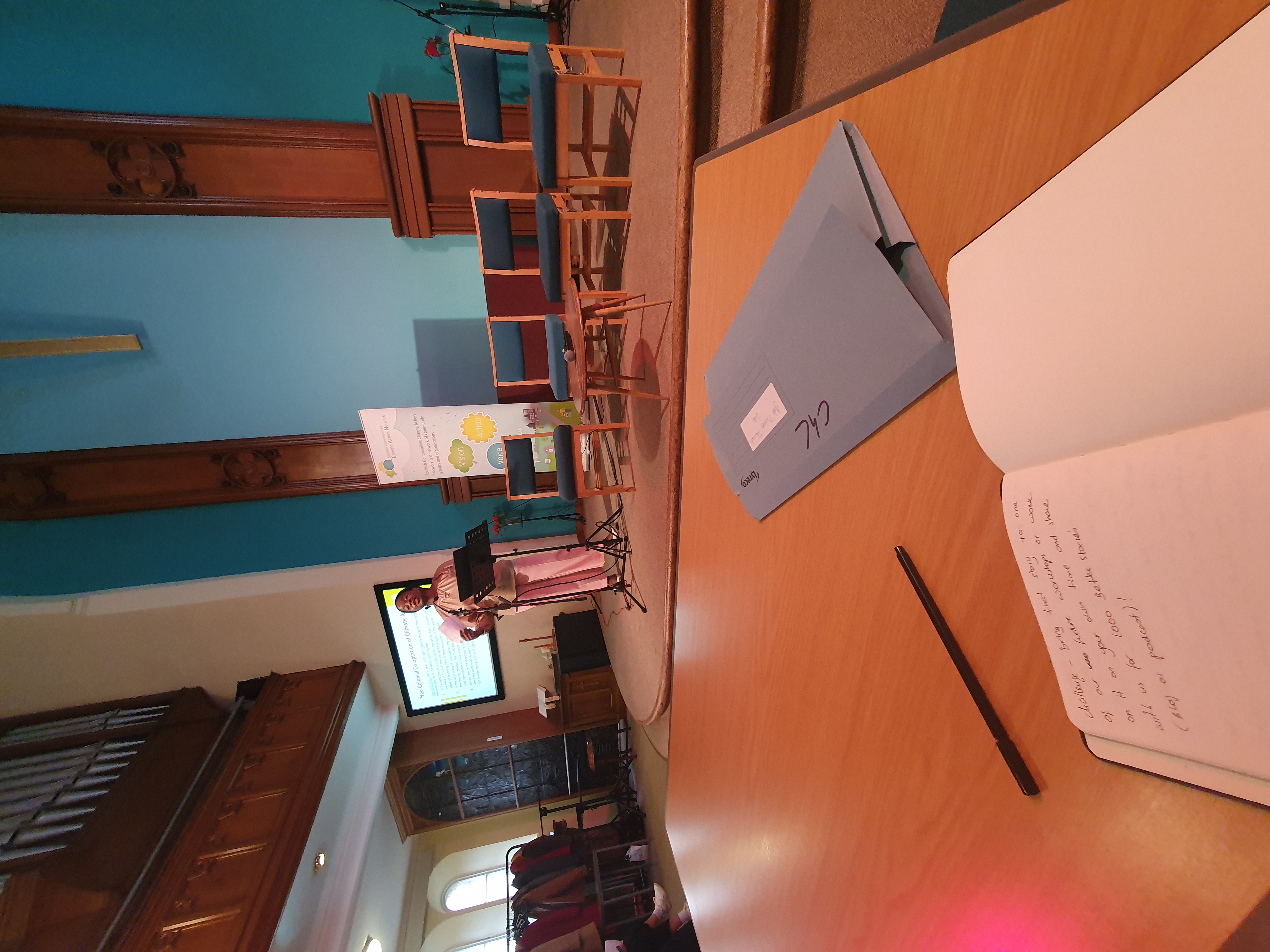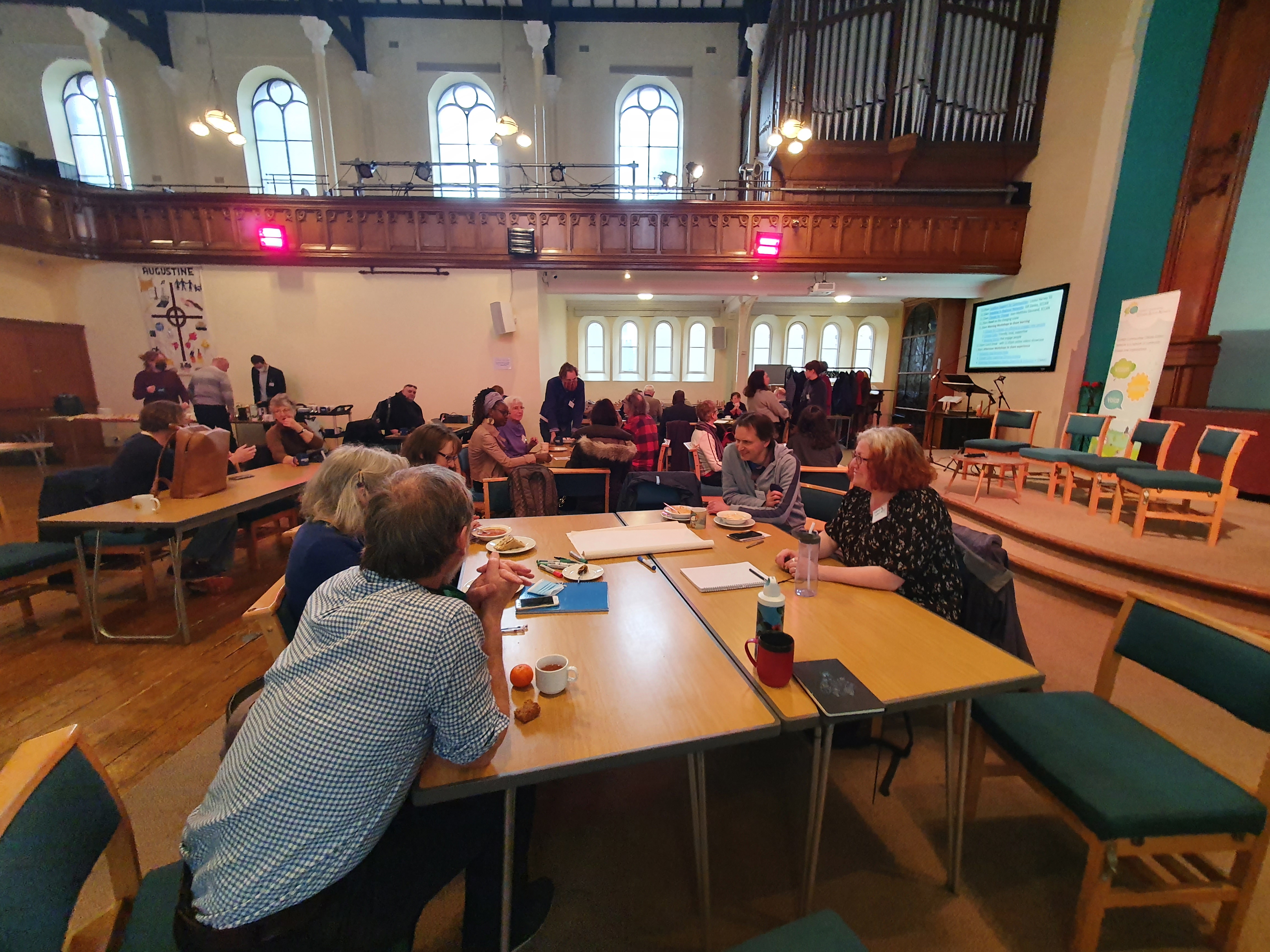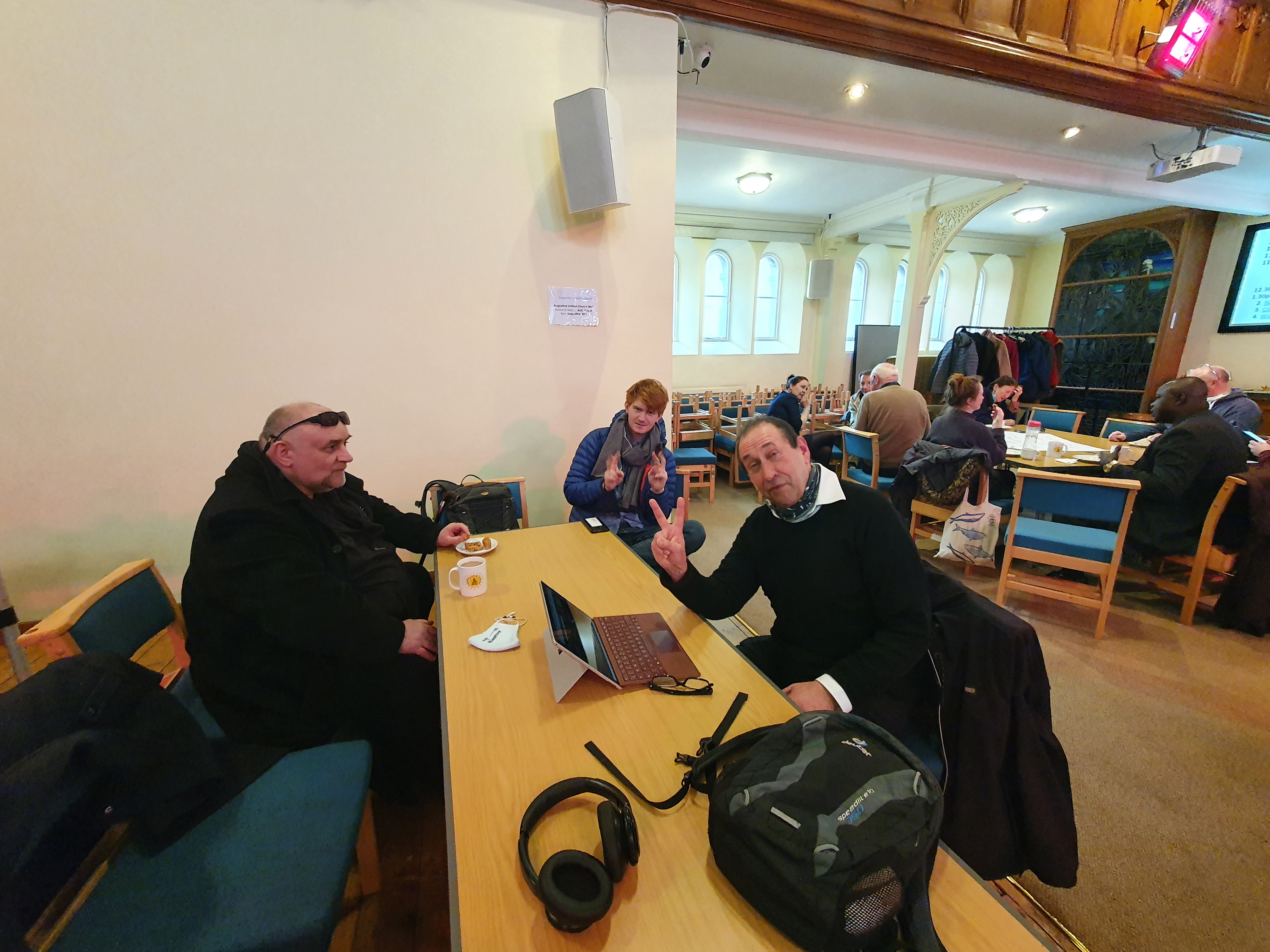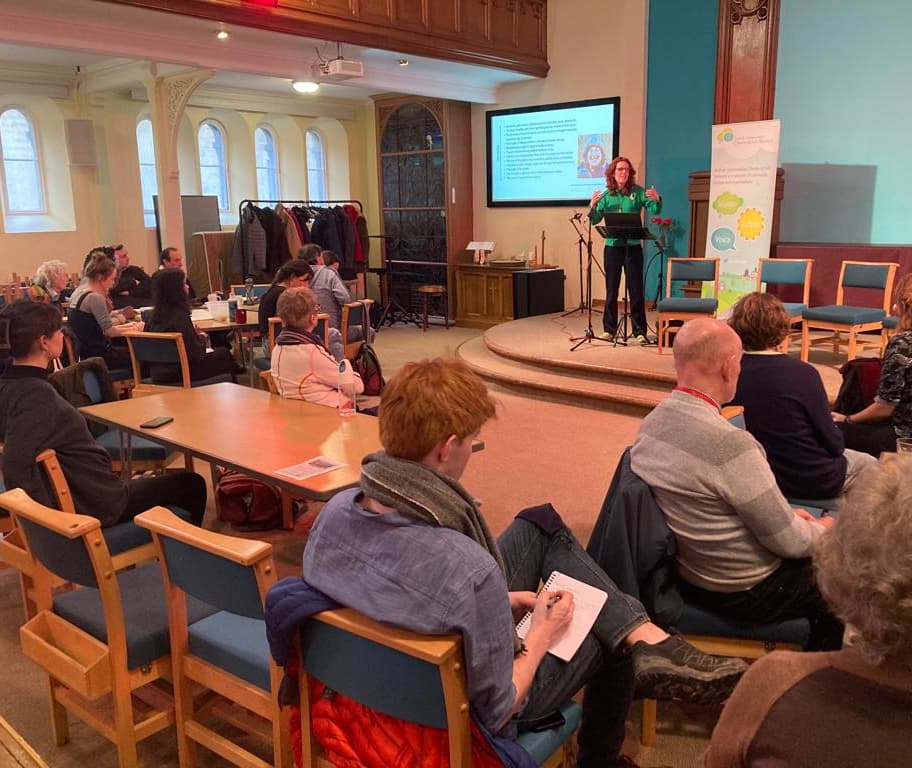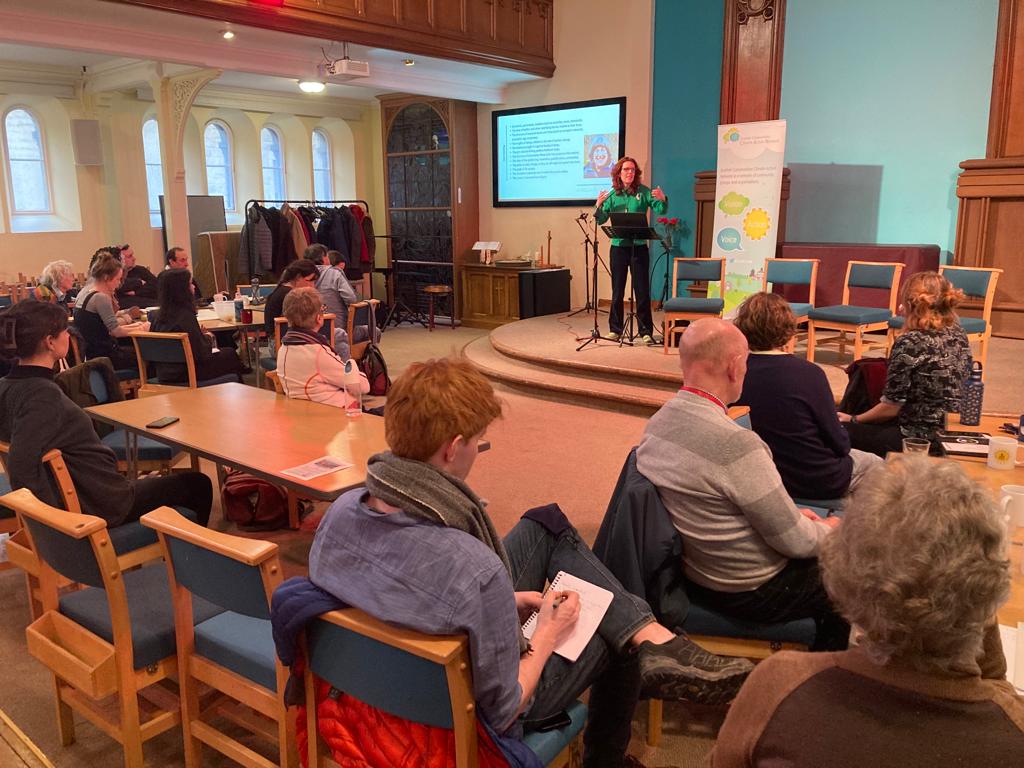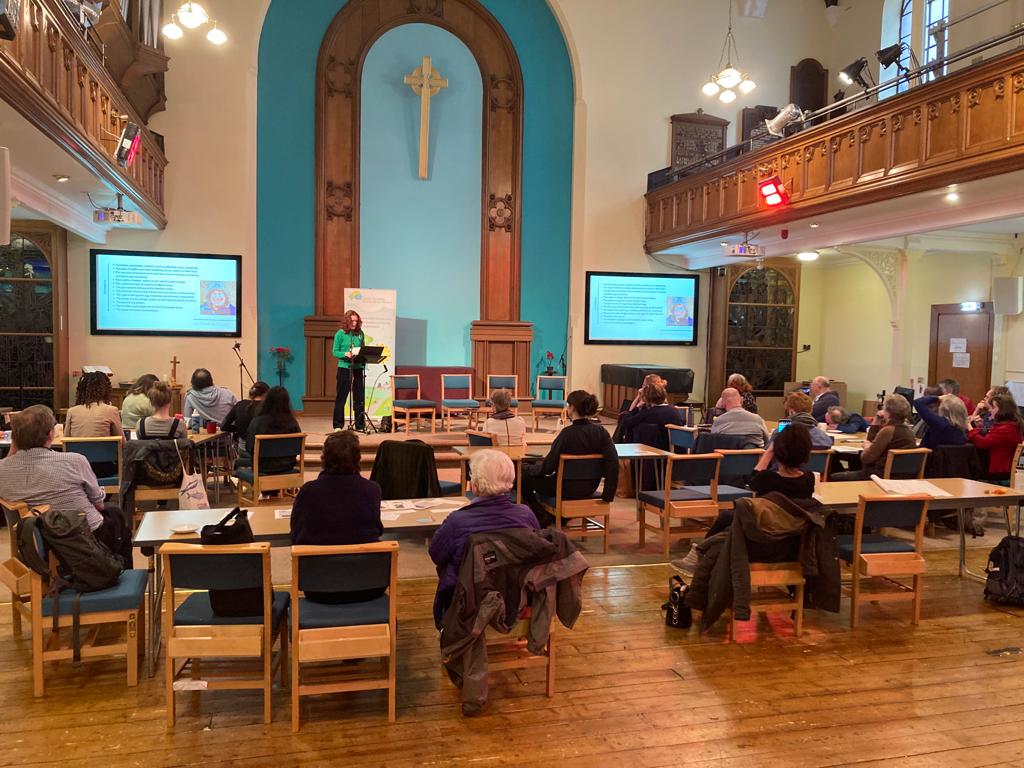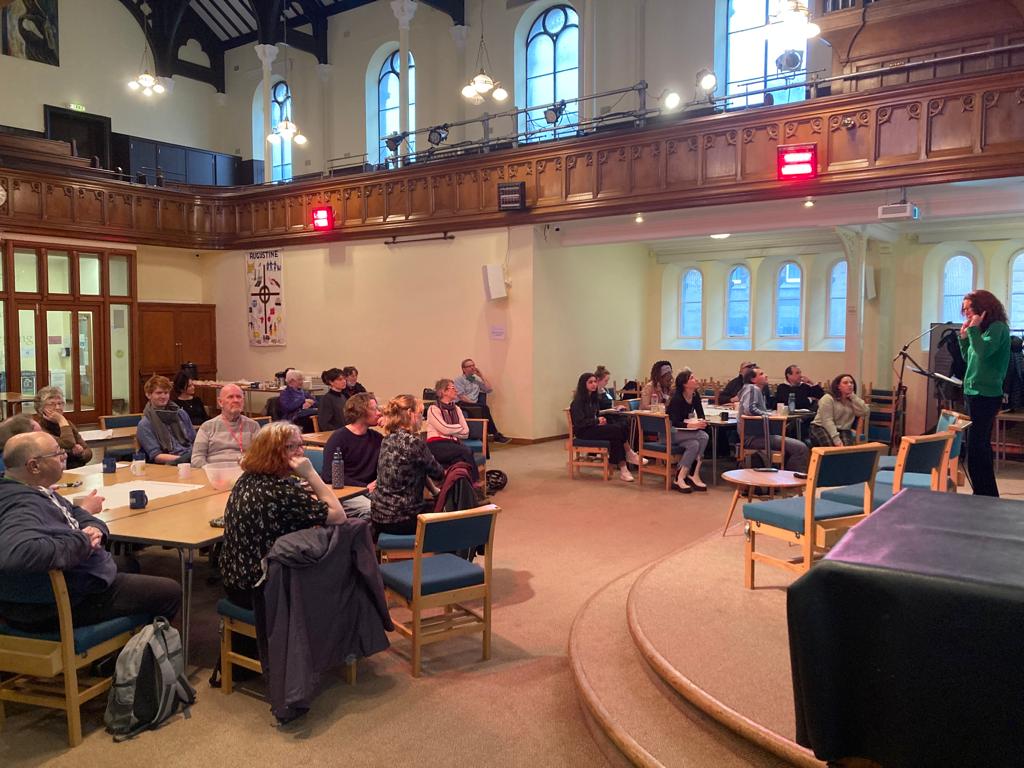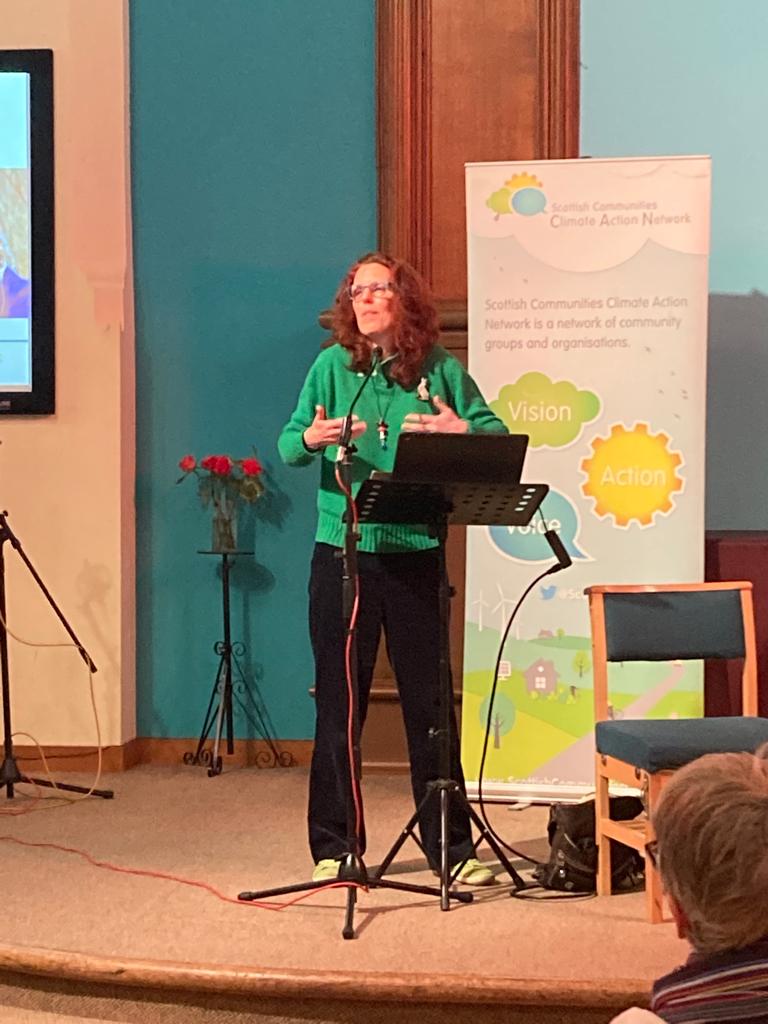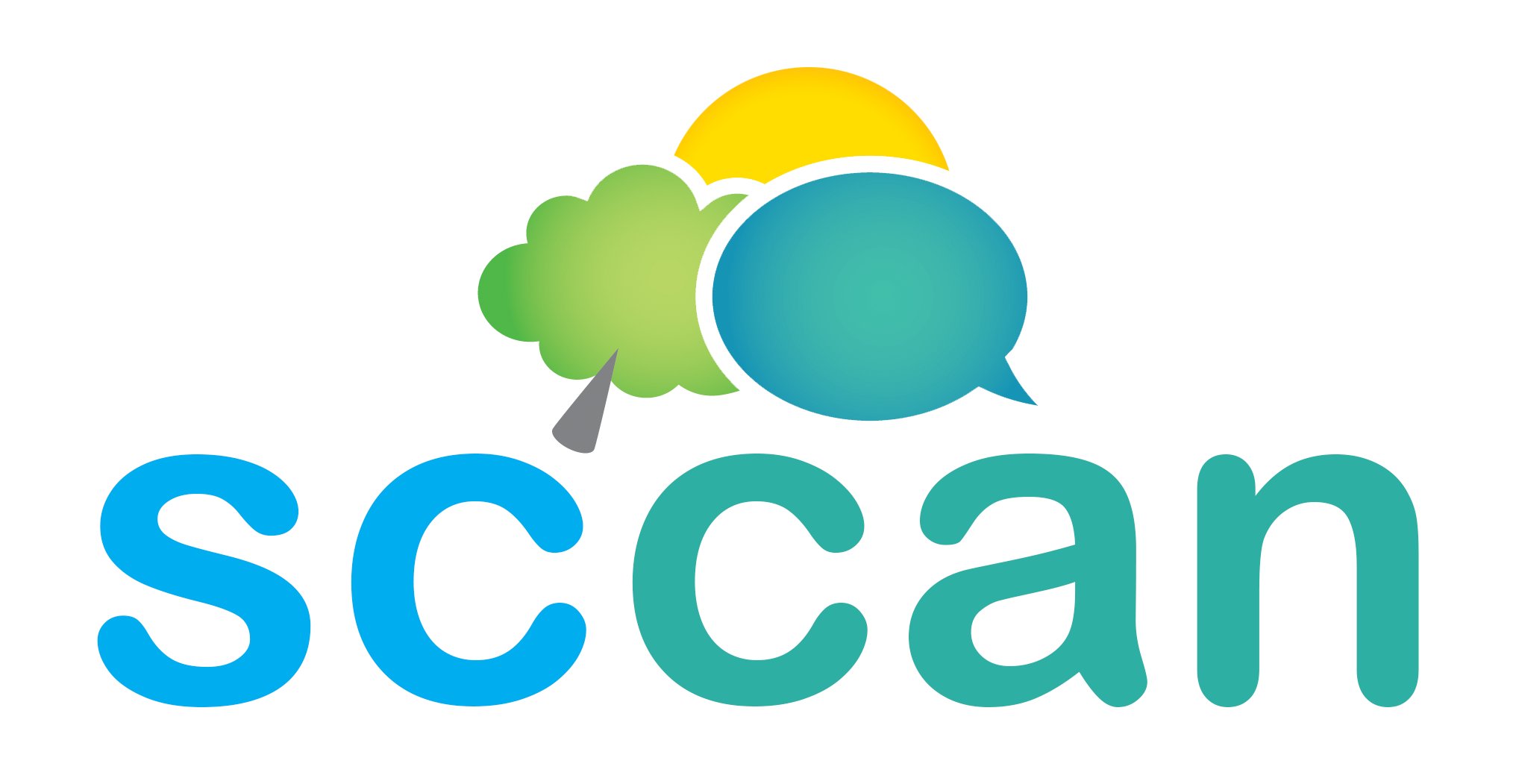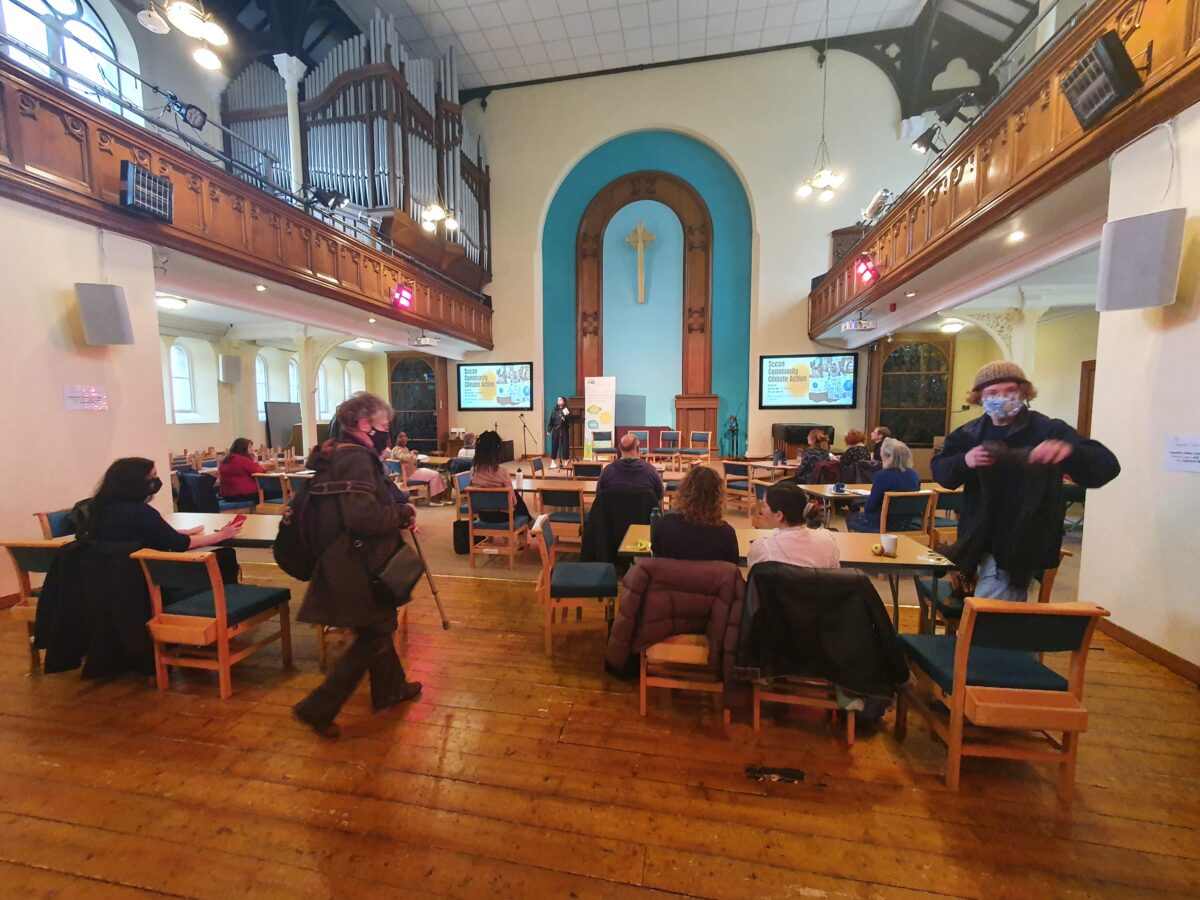A warm and friendly gathering is always a strong reminder of the power and meaning of the connections SCCAN is facilitating.
On the morning of the 11th of March, I watched Dr. Ife enter the room dressed in light pink tones, a softness to the power and wisdom that emanated from her. I drank from her words as she went on talking about how climate justice means different things to different communities. I nodded and scribbled down my scattered quick translation of the major topics she was bringing to the table. The capitalist burden. Compensation from big business and not vulnerable private citizens. Taking control of rights and resources. Big oil and ‘shady’ conservation programmes. It’s important to get things right in the conversation – and therefore action – about ‘fixing’ things, she says. We can’t truly fix things at the expense of vulnerable people, in the global South and North. A truly sustainable future cannot be achieved while halting development in the global South or penalizing young people in the global North with heavy taxation. A truly sustainable future has a great deal of collaboration that includes a downstream distribution of the financial resources to local organisations to avoid imposed solutions researched by people who don’t suffer the impact of such solutions.
Adapted solutions. Agency to the communities.
Dr Ife’s inspiring keynote opens our minds and hearts. I wonder – on a scale from totally powerless to quite in control, how is everyone starting this gathering? As we convey in smaller groups to explore together some of the activities and programmes that SCCAN has been delivering and the themes that we want to tap into I believe we are all moving on that scale. Sometimes flying, sometimes running, sometimes walking, and sometimes scrawling, we are all moving. We are telling better stories, we are widening participation, and we are adapting effective strategies to engage the public with conversations around climate change.
We are moving together like a large flock. Simon Barnes, a brilliant nature writer whom I very much admire, writes that the objective and cautious speculations of scientists fail to explain why a starlings murmuration flies round and round and makes a great series of glorious patterns across the sky. He writes ‘I see a murmuration as a great celebration of the joys of togetherness. Flying in a murmuration reinforces the bonds between birds: fixes the notion that for as long as winter continues, any one starling is only truly himself when he is part of a crowd.’ I find this idea a hauntingly beautiful metaphor for what we are doing.
In the spirit of storytelling, Dr. Alette walks to the stage to gift us with a closing speech. Her red hair glows and her bright eyes seem to be taking all they can from the room and the little story-making and story processing machines behind the faces of each one of us. Dr. Ife had reminded us that we can’t really fix things at the expense of vulnerable people in this big plan of ours to mitigate the climate crisis – that is the infective and exploitative way of the past. How can we fix them, then? According to Donella Meadows in The Limits to Growth, the most effective ways of intervening with the systems we so desperately need to change happen at an upstream level. One must intervene with the goals of the system, the mindset or paradigm out of which the system arises, and with the power to transcend paradigms. And stories are a powerful tool for this intervention.
Stories help us set goals. They help us make sense of the world. They help us practice and they help us shift perspective – virtually and then in reality. Dr. Alette’s questions about what stories are available to us in our communities, how we can critique them, and how we can amplify the stories we believe lead us to happier lives in tune with others and our environment, set my neurons firing. What happened during this gathering was a story in itself and I am very grateful for every beat and every chapter of it.
I’m grateful for this flock. It might feel at times that we are flying solo, unprepared to weather a storm but we are not and together we can.
Joana Avi-Lorie
SCCAN Story Weaver
